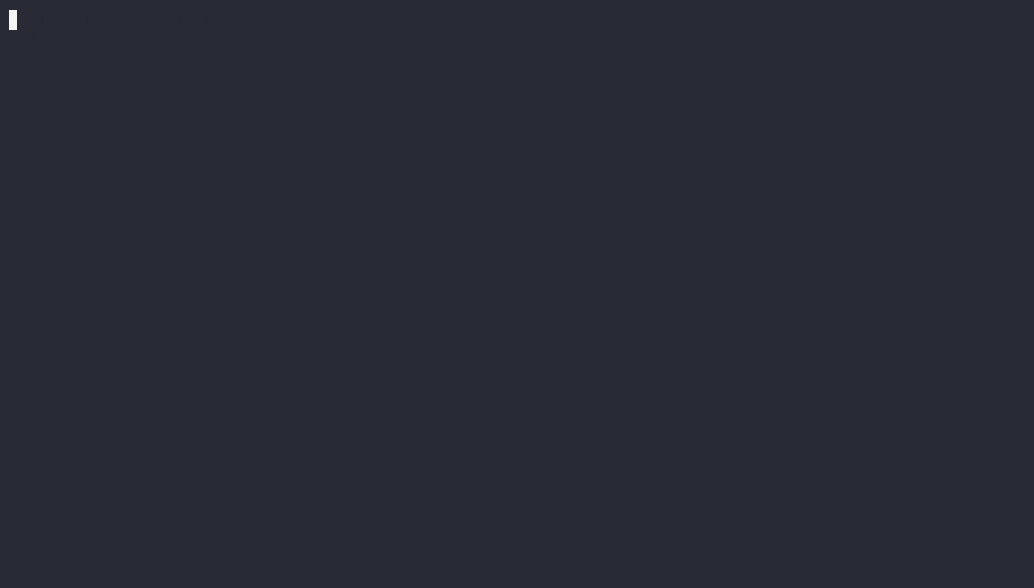-
Notifications
You must be signed in to change notification settings - Fork 3
Home
dreizehnutters edited this page Mar 19, 2024
·
2 revisions
Tool to probe and crawl targets and enumerate their attack surface using varous engines. Inputs can be:
-
.xmlfiles generated bynmapvide.sh nmap -sc -sp -eu -ew
- a list of targets
vide.sh scope.txt -sp -sc -ev
- stdin
echo example.com | vide.sh -sp -es --config custom.sh
- direct
vide.sh "10.0.13.37:8443" -el
_______________
==c(___(o(______(_()
\=\
)=\ ┌─────────────────────────~vide~────┐
//|\\ │ attack surface enumeration │
//|| \\ │ version: 2.2 │
// ||. \\ └─────────────────@dreizehnutters───┘
.// || \\ .
// . \\
This is yet another ctf/engagement automation tool, born out of curiosity and boredom. This tool was inspired by six2dez/reconftw.
Usage: vide.sh input [mods] [options] [misc]
Required:
input Specify an input format (e.g., file/path, string or stdin)
Mods:
-sp Skip probing with httpx
-sc Skip crawling with katana
Options:
-es Enable screenshot
-ew Enable whatweb scans
-ea Enable wanalyze scans
-en Enable nmap script scans
-eu Enable nuclei scans
-ei Enable nikto scans
-ef Enable ffuf brute forcing
-ev Enable virtual host header fuzzing
-ej Enable js crawl
-eb Enable bypass scans
-el Enable testssl.sh scans
-eh Enable ssh-audit scans
Misc:
-h|--help Show this message
-c|--config <config.sh> Config file to pass (default: custom.sh)
-o|--out-dir <path> Out-dir to work in (default: $PWD)
--verify Check configuration file (default: config.sh)
Example:
# skip crawl, skip probing, do virtual host header scan on a list of targets
vide.sh scope.txt -sp -sc -ev
# skip crawl, do nuclei, do whatweb on nmap output directory
vide.sh nmap -sc -eu -ew
# with config skip probing, do screenshot on stdin (default to HTTP)
echo example.com | vide.sh -sp -es --config custom.sh
# ssl scan on target
vide.sh '10.0.13.37:8443' -el
# verify current config.sh
vide.sh --verify# skip crawling, do httpX screenshots and WhatWeb scans on nmap -oX data
$ vide.sh nmap -sc -es -ew
[...]
$ tree .
├── nmap
│ └── init.xml
└── vide_runs
└── vide_22.02_23301708641003
├── host_port.txt
├── http_servers.txt
├── https_servers.txt
├── httpx
│ └── scan.log
├── screenshots
│ ├── response
│ │ ├── 192.168.42.131
│ │ │ └── 628362c5635403dbffbf03eb624e464b50915bc4.txt
│ │ └── index.txt
│ └── screenshot
│ ├── 192.168.42.131
│ │ └── 628362c5635403dbffbf03eb624e464b50915bc4.png
│ ├── index_screenshot.txt
│ └── screenshot.html
├── vide.log
├── vide_targets.txt
└── whatweb
├── brief_all.log
├── brief.log
├── deep_all.log
└── deep.logThe installtion and maintance of used modules by vide.sh is left to the user
$ git clone https://github.com/dreizehnutters/vide
$ cd vide
$ ln -s $(pwd)/vide.sh ~/.local/bin/vide.sh
$ vide.sh --verifyOne has to edit the config.sh to adjust the location of used binaries and configure extra parameter about each engine
cat config.sh| head -n15
# ---= bins =--- #CHANGE ME
NMAP=/usr/bin/nmap
XMLS=/usr/bin/xmlstarlet
NIKTO=/usr/bin/nikto
WW=/usr/bin/whatweb
WA=/usr/local/bin/webanalyze
SMBMAP=/usr/bin/smbmap
ENUM4LINUX=$PY_PATH/enum4linux-ng.py
FFUF=$GO_PATH/bin/ffuf
BYP4=$GO_PATH/bin/byp4xx
SUBJS=$GO_PATH/bin/subjs
HTTPX=$HOME/.pdtm/go/bin/httpx
NUCLEI=$HOME/.pdtm/go/bin/nuclei
KATANA=$HOME/.pdtm/go/bin/katana# check the current configuration
$ vide.sh --verify| Software | Version | Install |
|---|---|---|
xmlstarlet |
>= 1.6.1
|
XML parsing |
httpx |
>= 1.2.5
|
server probing |
katana |
>= 1.0.0
|
crwaling |
whatweb |
>= 0.5.5
|
tech discovery |
webanalyze |
>= 0.3.8
|
tech discovery |
nuclei |
>= 2.8.9
|
web server scanning |
nikto |
>= 2.5.0
|
web server scanning |
ffuf |
>= 2.0.0
|
directory brute forcing |
byp4xx |
>= b337580
|
bypass checks |
subjs |
>= 1.0.0
|
crawling js |
enum4linux-ng.py |
>= 1.3.1
|
windows enumeration |
smbmap |
>= 1.9.1
|
smb enumeration |
nmap |
>= 7.94
|
extended script scans |
testssl.sh |
>= 3.2rc3
|
SSL compliance scans |
ssh-audit |
>= 3.1.0
|
SSH compliance scans |
